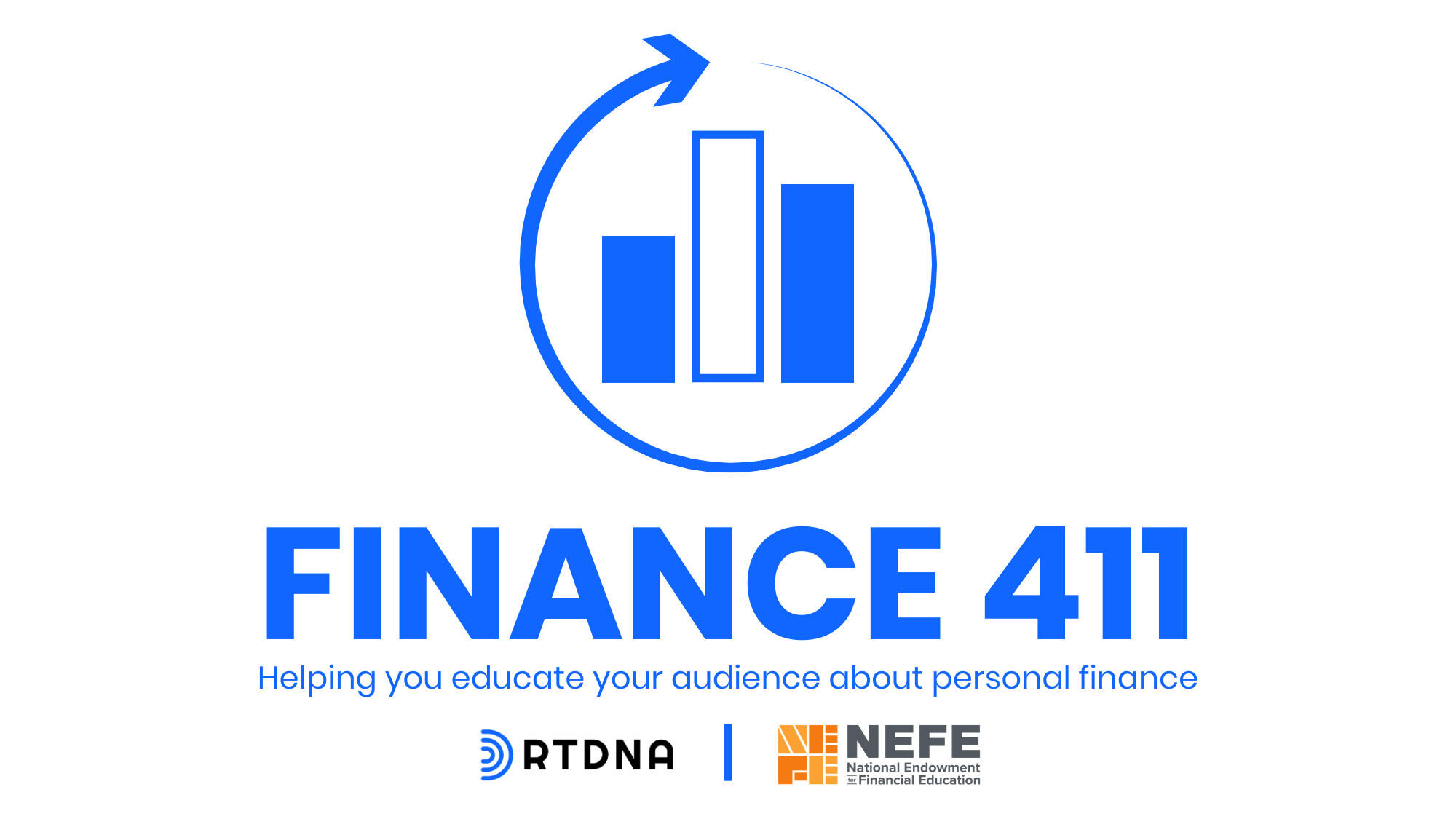Money Matters: Less about numbers and more about heart

It turns out that the Money Matters session at EIJ18 was less about numbers and more about heart.
RTDNA and NEFE officially presented the 2018 Personal Finance Reporting Awards Friday at Excellence in Journalism 2018 in Baltimore. The diversity of backgrounds, stories and insights from this year’s audio, video and digital winning stories show that any journalist – or CPA! – can, with the right approach, tell great stories about money issues.
Kathy Walker, RTDNF Secretary/Treasurer and KOA Radio News Director asked the winners to share a little about their winning work.
Why should news outlets do more consumer and finance stories, and how can you sell your assignment editor on them?
All three winners agreed that personal finance stories are important because they impact everyone at all stages of life. As Walker summed up, stories about home, heart and health connect most with audiences – and money matters touch all these. It’s less about numbers than people and their stories, said Jason Wheeler, WFAA, video winner. He said he fell into finance reporting but has grown to find it engaging and helpful for audiences. Why neglect coverage of something that affects everyone? His winning piece was a segment making up 40% of a 4pm hour-long newscast, which enabled Wheeler to offer solutions and hope, not just stop at illustrating a problem.
Another approach, Wheeler suggested, is to test it: He used a Facebook post to ask viewers to “share their number” or student debt, and it generated enough engagement to turn into on-air stories.
Jill Schlesinger, audio winner for “Jill on Money,” says to pitch shows in local markets by showing how the topic impacts you – your audience, yourself and your manager. And networks? Pitch both morning and evening shows to create a little friendly competition!
Where do the best story ideas come from?
Proving that learning never stops, two winners learned a new tip from their fellow winner: Susannah Snider, Personal Finance editor for US News, found sources for her story on student loan debt by searching GoFundMe. She found that many students or parents post fundraisers trying to pay off loan debt. She also checked the data to find schools with particularly high numbers of students or parents in debt and searched GoFundMe for those schools.
Reddit, Twitter, LinkedIn, questions from friends and family and major stories in the news can all lead to story ideas too: Snider noted covering the personal financial cost of harassment as the #MeToo movement took off.
Journalism or finance: Is one background better?
Jill Schlesinger, a Certified Financial Planner and independent investor, transitioned from the world of financial advising to broadcasting and writing. She gave kudos to her fellow winners, noting that her background is not journalism, as theirs is. The difference between practicing as an advisor and writing about finance topics took getting used to, she said. Echoing one of the session major themes, she said it’s important to remember the human element when writing about finance. Money can be an emotional topic.
On the other hand, Snider is currently working on her own Certified Financial Planner certification. She decided to pursue the credential after feeling “imposter syndrome” covering complex financial topics. The plus side, she said, is that part of being a journalist is asking questions.
The verdict? Each background has its advantages!
Another big question the award winners addressed: How can newsrooms balance the sales and sponsorship potential of finance segments with maintaining independence? Stay tuned to next week’s Money Matters for their insights.
